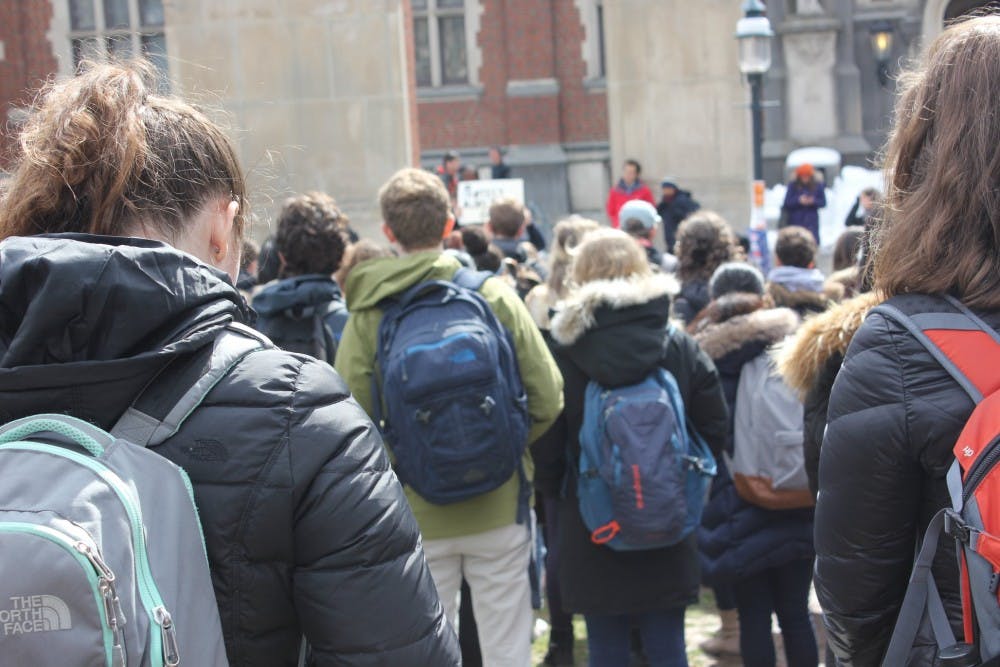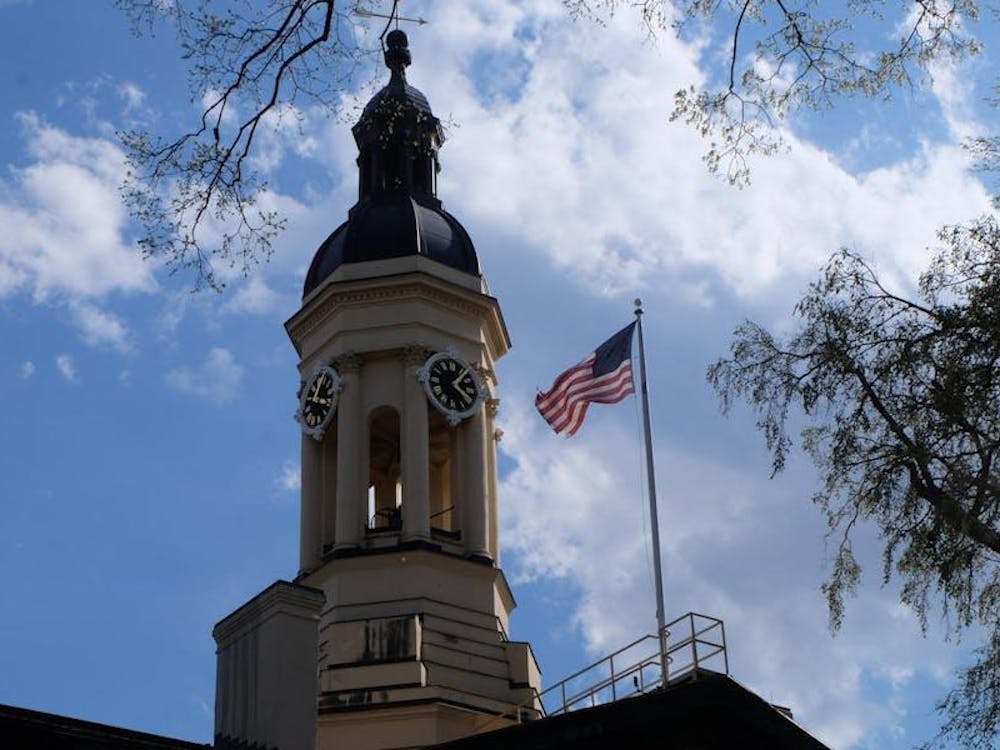On Wednesday at noon, several hundred students, professors, and Princeton residents gathered outside Frist Campus Center to call for increased gun control in the wake of the high school shooting that killed 17 people in Parkland, Fla., on Feb. 14. Hosted by Princeton Advocates for Justice, the rally was named “We Call BS,” a call to action for gun control activists originating from a passionate speech by Emma González, a senior at Marjory Stoneman Douglas High School, on Feb. 17.
Students carried signs with slogans including “Thoughts and Prayers Don’t Save Lives!” and “Demilitarize Society.” They chanted “Enough is Enough!” and “We Call BS,” with featured speakers leading the crowd. Many, like Elijah Barnes ’21, had never attended a gun control rally before.
“I came out here to support because no one seems to be doing anything,” Barnes said. “We need change and policy makers need to see that.”
Barnes added that he now plans to travel to Washington, D.C., to participate in the “March for Our Lives” on March 24 and to continue to call for change.
Speakers included University students and Assemblyman Roy Freiman, who represents New Jersey’s 16th Legislative District. The town of Princeton is in the 16th District. They delivered speeches about gun violence and gun control reform. Many spoke of losing classmates and friends.
Freiman reminded the crowd that student activism has helped shape the course of history, from the peace movement during the Vietnam War to divestment campaigns during South African apartheid. Freiman hopes that the recent outpouring of student activism will have a similarly transformative effect on gun control reform.
“I came here to support the students and to support the movement around sensible gun control and ending gun violence,” he said.
Freiman said that while New Jersey has strong gun control measures already, it should always look for continuous improvement.

“How do you continually look at tragedies and ask yourself ‘what did we miss?’ How do you strike the balance between gun rights and making sure the wrong people don't have access to guns?” Freiman asked.
“It’s interesting that gun safety is not a part of gun culture in the same way that driving safety is a part of car culture,“ he noted. “So how do we make that a part of the culture, until it’s a no-brainer?”
Freiman said he believes that the minimum age to purchase a rifle in New Jersey should be raised to 21, the minimum age for purchasing handguns.
He emphasized that gun control is a national issue, not confined to New Jersey.

“This movement is not just about New Jersey,” he said. “We’re rallying for things that took place in Florida right now, but before that it was in Colorado, it was in Connecticut, it was in Virginia. It’s a national issue.”

Kiki Gilbert ’21 said that people of color, and particularly black people, don’t enjoy the same Second Amendments rights as white people. Gilbert cited many cases of people of color being mistaken for threats by police because they were armed, or because police thought they were armed, as well as stories of people being gunned down in their homes and on their front steps. As Time Magazine reported last year, black children are 10 times more likely to die from gun violence than their white counterparts.
“The Second Amendment is racialized,” Gilbert said. “One of the worst and most dishonorable mistakes we’ve made is to pretend these issues [gun violence and gun control] exist in a social vacuum.”
Ben Bollinger ’21 called gun suicides “the elephant in the room” of the national debate on gun control. Bollinger, who wrote a Daily Princetonian guest contribution on the subject, said that many make the mistake of assuming that gun suicides, more than any other type of gun violence, are purely a mental health issue rather than a gun control issue, and that gun suicide victims would have died regardless of whether a gun was involved. However, gun suicides are much more likely to be fatal, and make up a disproportionate amount (approximately half) of all suicide deaths.
“Guns can take a momentary suicidal impulse and turn it into a permanent mistake,” Bollinger said, adding that waiting periods and extreme risk protection orders would reduce gun suicides.
Watching from the crowd, Sophie Moullin, a fifth-year graduate student in the sociology department, and Sally Isaacoff, whose husband is a postdoc on campus, stood alongside one another with their strollers.
Isaacoff said she was so horrified by the Sandy Hook shooting that she initially decided not to have children.
“But then I had a child. And now it’s difficult to stomach raising a child in this country,” she said. “The way things are with gun violence, sending them to school is a nightmare.”
Moullin, who is from the United Kingdom, agreed with her.
“Just the idea of raising a child in such a violent society is pretty horrifying, really,” she said. “You have a new urgency about this issue as a new mom.”
Similar “March For Our Lives” gun control advocacy marches are taking place across the United States on March 24.







